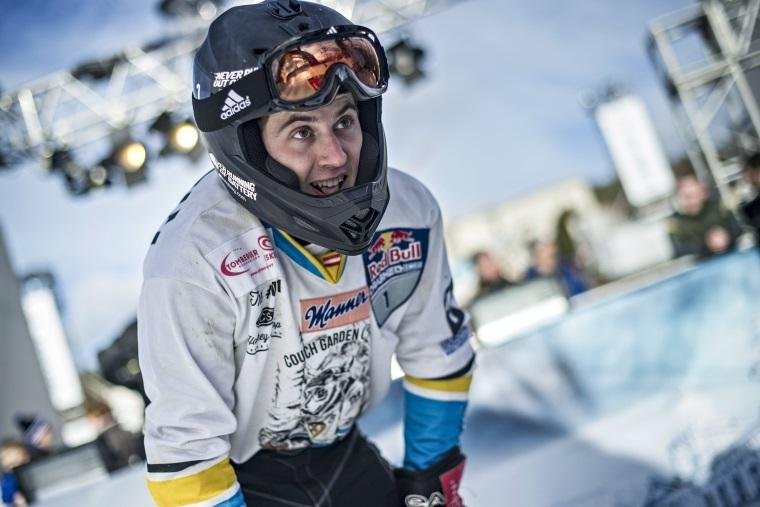Three of the five Ice Cross Downhill World Championships have been won by Alpine athletes with downhill racing backgrounds after former hockey players had dominated in the world's fastest sport on skates in the previous years. The success of Austria's Marco Dallago, Switzerland's Derek Wedge and Germany's Martin Niefnecker who learned to race downhill in the Alps has fuelled an intense debate in Red Bull Crashed Ice circles: Are skaters or skiers better prepared for the rough and tumble challenges of ice cross downhill?
"I think there are two assets that come from Alpine skiing that are very helpful for the sport: the downhill factor and speed," said Dallago, who won the world championship in 2014 but slipped to sixth in 2015 with Scott Croxall, of Canada, (a former hockey player) taking top honours. "Speed is something that skiers are used to. The problems you face skating downhill are enormous on their own, so if you don't have to worry about the high speed and fear of going downhill those are two less things to worry about and you can focus on other problems like getting over 10-metre-long jumps and dealing with three other maniacs in your heat who want to finish first."
Dallago (pictured, below) and his brother, Luca, grew up racing down mountains in the Alps and later started playing hockey as well. "I never raced competitively on skies but we went fast all the time," he said. "No slope was too steep to race down. That basic feel for speed that I got from skiing has definitely helped me with ice cross downhill."
Switzerland's Wedge, a freestyle free spirit who stunned the former hockey players in the sport with his inspiring world championship win in 2013 ahead of a pack of former hockey players, has a broad downhill background on skis, snowboards and mountain bikes.
"We're just used to going downhill," said Wedge, the adventurer. "We're used to the hills and the speed. Skiing helps a lot and even more if you do jumps and stuff like that with skis. In the summer I do a lot of downhill mountain biking which also helps. But you can't neglect the skating. You still need good skating skills."

Niefnecker, who grew up in the Bavarian Alps and has played a lot of hockey in his life, said he believes the Alpine background and being comfortable with high speeds might give those with downhill racing experience a slight advantage in Red Bull Crashed Ice. But the 2011 Ice Cross Downhill World Champion said there is no substitute for skating skills.
"I think in general you've got a small advantage if you are more accustomed to the high-speed downhill racing from skiing," he said. "People from the Alps do feel a bit more at home with the high speeds and the jumps. But every race track is different and there are some tracks where your skating style and skills are far more important."
That is also an argument that many of the former hockey aces make. They say that the tracks evolved in recent years, becoming more difficult, to intentionally or unintentionally favour the downhill specialists at the expense of those with hockey skating skills. But others say that is nonsense and the more difficult tracks in recent years were merely a reflection of the sport evolving with a greater variety of track types. Scott Croxall proved that in 2015 by adapting to the more difficult downhill tracks and forgetting about his hockey expertise.
"Every track is a completely different challenge," said Niefnecker.
Dallago, who has also played a lot of hockey in his life, agrees that the sport is advancing quickly and those on top in the future will have to be hybrid athletes who can ski and skate fast and flexibly no matter what the conditions are.
"Hockey gives you two really important skills: skating and dealing with body contact, so you don't lose your balance," he said. "Hockey gives you a great basis for this sport."



